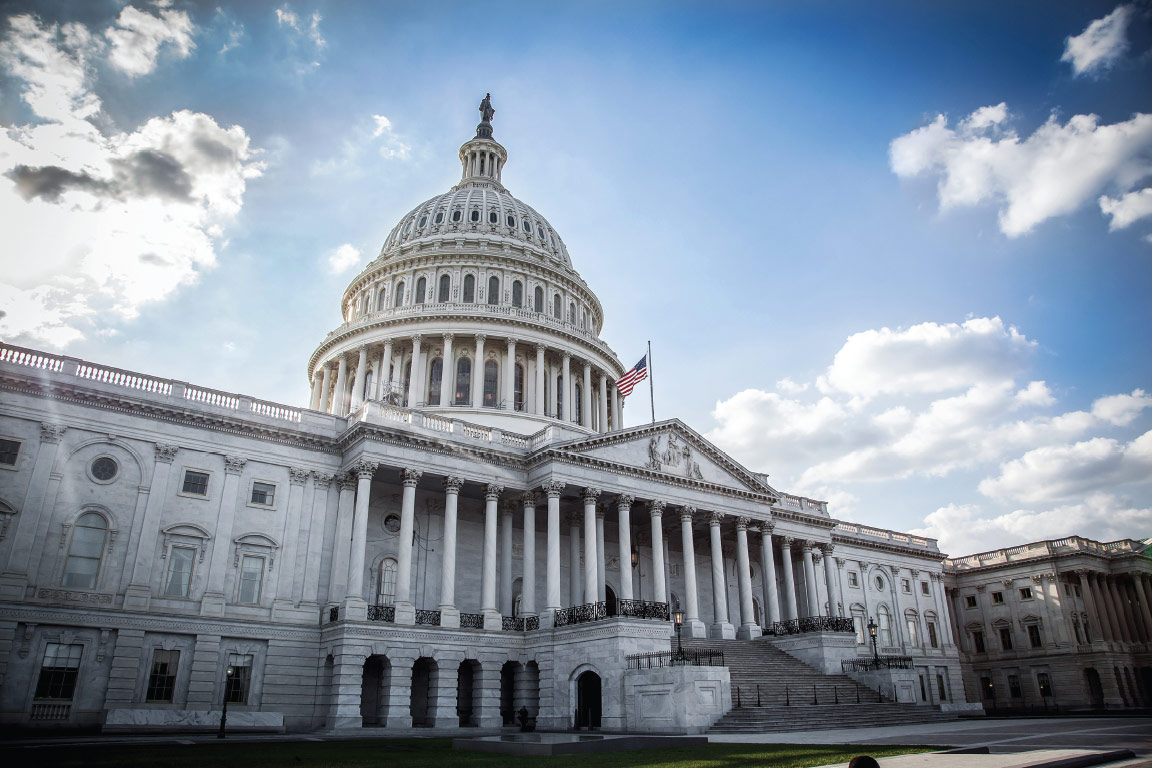SLU LAW Attorneys in Government: Paths to Public Service
Five graduates of Saint Louis University School of Law share their insights into elected public service work across all levels of government.
They discuss their memories of law school, how their education helped prepare them for this work, and why it’s worth pursuing.
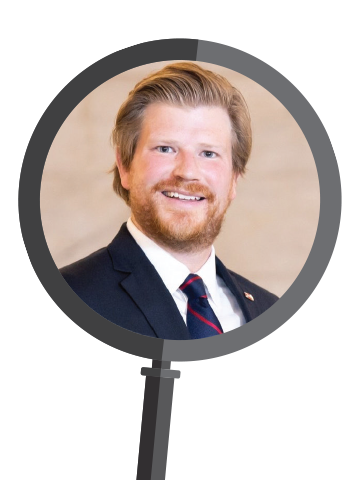 Jack Coatar (’12)
Jack Coatar (’12)
Alderman of the 7th Ward, City of St. Louis; Of Counsel, Spencer Fane LLP
What was your path to public service?
I was a Pre-Law Scholar at SLU in my undergrad. I took a year off and worked for Barack Obama’s first presidential campaign and then worked on Mayor Francis Slay’s 2009 reelection campaign. I started at SLU LAW in fall of 2009. I wasn’t a full-time day student; I went to night school and eventually did a hybrid. I was able to keep working full time in Democratic politics; I was the executive director of the St. Louis Democratic Party and was able to assist and work on campaigns.
I didn’t necessarily know I was going to go in the direction of elected office; most of my experience had been working for candidates. But after graduating I did go into a public service role in the Prosecutor’s Office as assistant circuit attorney for Jennifer Joyce. I left in December of 2014 to run for alderman. I had an opportunity to run and couldn’t pass it up. So I’ve been in some form of public service since 2012, but I’ve been an alderman since April of 2015 — right across the street from SLU LAW.
Favorite law school memory?
I really enjoyed Joel Goldstein’s seminar classes and hearing from such interesting people in government — federal judges and U.S. senators would guest speak. And I absolutely loved Mike Wolff’s State Con Law class; that was just a blast.
My favorite memory would be law school softball. Since I went to night school, that was a way to connect with my peers. Some are still my dear friends today. I also want to say I wouldn’t have gotten out of there without help of Jon Baris, Shannon Morse, Mike Wolff and Joel Goldstein. They’re the reason I graduated.
How has your SLU LAW degree helped you in your role?
The Jesuit mission and SLU’s mission of being men and women for others — that certainly helped shape me as a lawyer and as a public servant. I spend my whole day fixing people’s problems. Most of my day is spent fielding calls, and as a lawyer in private practice I’m doing the same thing, helping individuals navigate the judicial system and solve problems. I like helping people, and I’ve found a good way to do that in two ways, as a lawyer and as an alderman.
Why is it important to have lawyers in elected service roles?
Lawyers are uniquely positioned to serve, whether it’s a city council or state legislature or Congress or even just volunteering on a local board. Our ability to analyze, to help draft laws, to interpret laws and interpret their consequences is a great skill, and it’s a skill that a lot of people frankly don’t have. It’s somewhat disappointing to see there are so few lawyers in legislature on county councils, I think mainly because of the time restraints it’s difficult to have a practice and serve in these roles.
If you’re looking to get involved, the first thing to do is reach out to your local alderman or mayor’s office. There are so many needs in local commissions. If you’ve got some spare time and could lend your expertise, there’s a board for you to serve your community.
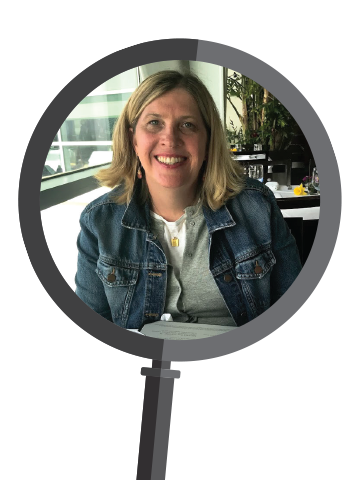 Jenny Schmidt (’09)
Jenny Schmidt (’09)
Deputy Mayor and Councilwoman of Ward 3, Maplewood, MO
What was your path to public service?
I’ve always been interested in working with government somehow. Growing up, community service was part of my education, and after college I served as an AmeriCorps Vista volunteer and stayed in Colorado for two more years in the area of social work. I moved back and ended up going to law school.
At the end of 2016 I was overwhelmed and down with where things were in our country. Regardless of political affiliation, politicians weren’t really working for us. I remember reading something by Bernice King who said the most effective change you can make in your community is locally. Shortly thereafter a Maplewood mom sent a private message to several women stating, ‘There’s an opening on city council and a woman really needs to run for it.’ It was the first time in about 10 years there was a vacancy; in the past no one wanted to run against a neighbor, and at the time only one woman was on the council. It was something I’d always been interested in, so I just did it! I began serving in August 2017, finishing out the previous holder’s term, and then ran again in April 2019.
How has your SLU LAW degree helped you in your role?
In law school you really do learn how to listen to all sides of an argument in order to truly understand it. My background in law helps me to point things out that other council members might not be aware of. It has also taught me to see what information is missing. Probably to the annoyance of some of my fellow councilpersons, I typically ask a lot of questions when presented with an issue. My background working with tax credit projects has helped as well. We had a tax abatement renegotiation come before us, and the main source of information was a set of financial projections, which I review often for work. I was able to ask a lot of questions that were important to our decision that I don’t believe they were able to ask in the past.
I feel like I got an excellent education there; SLU LAW does a great job getting teachers who are experts in what they do.
What accomplishments in public service are you most proud of?
One of the accomplishments I am most proud of is working with my colleagues on council to improve transparency and accessibility. We had our first town hall in a long time in February 2020. Three of us went and watched a town hall in a neighboring community and brought the idea back to the council. Our first town hall was very successful with over 50 people attending. We made it more accessible by offering dinner and creating a space for kids to hang out in. I brought my kids to help monitor the kids’ room so parents could participate freely. We also began recording our meetings in the fall of 2019 and posting the videos the next day.
In addition, we expanded the use of our Community Development Block Grant funds to include using a portion of the funds for utility assistance. Previously a large portion of the funds were set aside for programs beneficial to homeowners, and with over 50% of Maplewood housing consisting of rental property, it was important to me to utilize the funds for programs renters could access as well. I am especially proud of the work we have done since the pandemic began. In the last year, we have passed an ordinance allowing mini food pantries on city-owned property, passed an ordinance decriminalizing marijuana, made our Board and Commission application and nomination process more transparent and accessible to all members of the community, and are now in the beginning stages of a complete overhaul of our ordinances for which we will utilize several forms of community engagement to create a set of community values that will guide the changes we make to our ordinances.
Favorite law school memory?
A specific memory [and one] that I often think about, especially as a city councilperson: My last semester I took Disability Discrimination with Prof. Pendo and she assigned us the task of going to a public place and determining whether it was accessible. My classmate and friend Jayme Major and I along with my then 6-month-old daughter, Lucy, went to the Brentwood Target (before it was updated to its current layout). We had gotten through measuring most of the store and were in the bathroom when an employee came in and asked what we were doing. We explained, she left, and then a few minutes later a supervisor came in and kicked us out!
I learned a lot that day. At that time the Brentwood Target wasn't very accessible (for example, the tables in the cafe were bolted to the floor and were too close together for any wheelchair to be able to pass through), and I had never noticed that because it had never been an issue for me personally. Through that exercise, I realized that in analyzing certain issues I was failing to take into account the perspective of an entire group of individuals living in my community. I was grateful for that lesson and continue to apply it when confronted with an issue or making a decision as a councilperson by always trying to identify who is missing from the conversation and making sure we incorporate their voices and needs when coming to a solution.
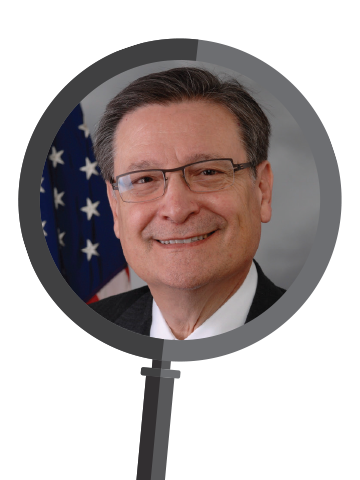 Francisco “Quico” R. Canseco (’75)
Francisco “Quico” R. Canseco (’75)
Former U.S. Representative for Texas’ 23rd Congressional District; Director, Election Protection Project, Texas Public Policy Foundation
What was your path to public service?
In my years of law practice, I dedicated a lot of time to helping people who can’t afford certain things, whether it’s an eviction or someone swiped their paycheck. I’ve practiced law mainly in the financial sector. When you represent institutions and you’ve got people who didn’t pay their bills because something happened in life, you have to inject into the deal a lot of sympathy.
In 2003 I got tired of listening to the news and thinking I could do things better, and I tried to get into politics. I got my name out there through south Texas and managed to get into a runoff in the Republican primary. I lost, but I stayed very active politically. I did a program for the State of Texas called ‘Adopt a Judge,’ which encouraged people to invite judicial candidates into their social groups, into their rotaries and Kiwanis, so they can know who judicial candidates are. I was encouraged to run in 2007 for an open seat in U.S. Congress [Texas’ 23rd congressional district] that went from San Antonio all the way to El Paso — it covers a fourth of whole state. I got beat [in the primary], and the next go-round [in 2010] I won.
Winning is one thing — now what’re you going to do? It was an eye-opening thing because you have a huge amount — 800 miles, ranches, military bases, small businesses, big businesses, oil and gas issues, water issues, issues of urbanization, and a lot of San Antonio is very different from rural areas, very different from El Paso.
What you do on floor of the House is very different than what you’re doing as a representative of your constituents and making sure that their government is working for them on the ground. As a servant of the people, you get a lot of audiences with your constituents who have all sorts of needs — Social Security, benefits, education. You try to move mountains for them. Because you’re a member of Congress, you can call the head of the department and pull some strings, of course judiciously. And if it’s a donor, you pass that up. I’ll never forget having a telecom company ask me for some legitimate help for their rural communications and the next day I get this huge donation and I had to send it back. You’ve got to be able to keep things straight.
Since I’ve left office [2013] I’ve been practicing law again. In 2019 I was approached by a conservative think tank called the Texas Public Policy Foundation to join their ranks. I said yes, although I lament not continuing the practice of law. I’m the director of a project on voting.
How has your SLU LAW degree helped you in your role?
A lot of the Jesuit ideal sort of goes into your bloodstream and becomes part of you and how you think and how you carry out your duties to your family and to your community. It’s hard to put a finger on it, but when you compare yourself to someone who was educated in a different system, it’s obvious that the imprimatur is Jesuit, and I’ve always been proud of that. There seems to be a certain brotherhood that surpasses politics in that you know who you are in the actions that you take and how you take them.
Even though I disagree on a secular level with some of the positions the Jesuits take, I give them their due and respect them for why they’re doing it. I’m conservative philosophically, constitutionally, I’m a Republican through and through, and it’s all based on the values I got from the Jesuits.
Favorite law school memory?
I’m going to use Prof. Vince Immel’s words — that guy was just terrific; I think of him all the time and I wish he were still around. We were quizzing him and one guy said, ‘What can we do with this? We’re graduating tomorrow.’ He says, ‘What you don’t realize is that in your hands you have the power to do brain surgery,’ — meaning that you have tools that can allow you to do many things, call it law or whatever. It is a system of thought, a system of logic that you use. It is a problem-solving tool that I thank SLU for giving me the privilege of being exposed to because it has been useful to me all my life.
And I will tell you, I was on the board of a hospital for a while and was elected chairman. On the board you have credentials. … I told them the story of Prof. Immel and I said, ‘As a lawyer I can perform brain surgery if I wanted to. Don’t worry, Doctor, I won’t ask to be credentialed to perform!’
I think a lot about SLU, about both my undergrad and law experience there, and I carry it with me everywhere I go.
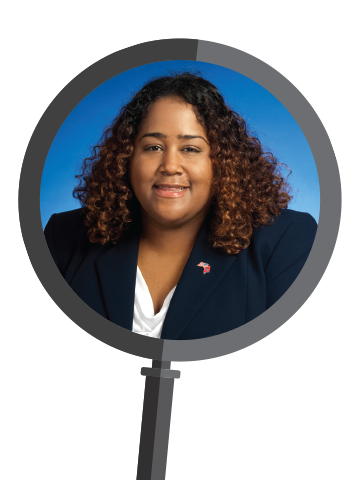 Raumesh Akbari (’09)
Raumesh Akbari (’09)
Member of the Tennessee State Senate from the 29th District; Director of Legal Affairs and Human Resources, Akbari Corp.
What was your path to public service?
I always knew I wanted to do it. When I was in third grade I saw Bill Clinton’s inauguration, and I remember telling my mom, ‘I want to go to that.’ I watched the world news with my dad every day.
I graduated from law school, and I wanted to be more involved. I started being mentored by one of our [family business] clients who was a state representative. We went to Nashville to get approved for our cosmetology school, and went by her office in the Capitol and she said, ‘Next session you can shadow me.’ That was June 2013. In July, my predecessor passed away of pancreatic cancer.
It ended up being seven of us running in a special election from August to October. My family just jumped in, my mom was my campaign manager — I called her my momager — and my mentor connected us with some folks who helped with mailers and canvassing, so we were knocking on doors. One of the people we ran against was the daughter of one of the Fords, and the papers said it was the Ford lady’s race to lose. I threw them all for a loop. The Democratic establishment was like ‘Who is this girl?’ and the press couldn’t believe it. I’d spent a lot of my summers and childhood there and I think that resonated with folks, as well.
We stayed positive, we worked as hard as we could, and I won. Because it was a special election, 1,800 people voted and of that I got 500, and I ended up beating my nearest opponent by 100 votes. Every vote counts! I remember talking to someone who said she wasn’t voting because it was a waste of time. I said, ‘You’re in school, so you’re getting some kind of [financial] aid; politicians in Nashville and D.C. control all of that!’ She ended up registering to vote and working on my campaign.
How has your SLU LAW degree helped you in your role?
Being able to help other people when they don’t have anywhere else to go to me is invaluable. There’s a lady in west Tennessee who is legally blind, and her Section 8 housing was not renewed. I called the state office — to be able to stop that type of situation, that makes me feel good. It’s truly the pursuit of helping others; sometimes it’s frustrating, and it’s frustrating as hell being in the minority party, but surprisingly about 90 percent of things we agree on.
You just have to take those disappointing days and reset and remember why you’re there. I’m going to keep doing it. My district is in Memphis but the Capitol is in Nashville, so I travel 210 miles each way every week away from my family. If I’m not being effective, I don’t need to be there.
What accomplishments in public service are you most proud of?
I’m big on criminal justice reform, economic development, and strengthening public schools. We had the third highest expunction fee in the country, $450. I worked and worked; we had to get in the governor’s budget since he has to agree it’s good policy, too. We reduced it to $280. Our new governor came in and proposed eliminating the fee altogether. I and the majority leader of the House at the time — we don’t agree on most things, but we agree on this — we eliminated the fee completely except for the clerk’s fee. When you don’t have any money, it could feel like a million dollars. So now you have people who can get back to work and get their lives back.
I’m working on a piece of legislation we’ve been in the struggle for for four years now to reduce sentences of juveniles convicted of first-degree murder. [Tennessee] had a person who was incarcerated, Cyntoia Brown [who received a life sentence as a teenager despite the tragic circumstances] — she kind of went viral. I went to the governor’s office and he really listened, and of course everyone was reaching out to him. I was able to be at the press conference when it was announced [that Gov. Haslam granted her full clemency]; it was really special. And she’s a part of this legislation now, so she testified in committee. It’s bipartisan, and we have a bunch of people signed on. That is probably my most exciting project.
I would encourage lawyers to get involved if they can. We’re missing y’all in the public service sector.
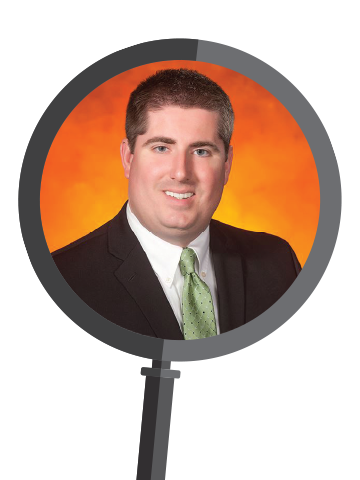 Grant Mabie (’08)
Grant Mabie (’08)
Mayor, City of Crestwood, MO; Attorney, Hein Schneider and Bond P.C.
What was your path to public service?
I’ve always been fascinated with it. In high school, in addition to roller hockey I did speech and debate, with an emphasis on public policy, debating the pros and cons of politics. I’ve always followed political issues and tried to be an informed citizen. Certainly going to law school prepares you for that.
Before I was elected mayor, I was elected two terms to Crestwood’s Board of Aldermen. I was elected mayor in 2018 when the previous mayor resigned for health reasons. I filed for reelection and no one filed to run against me. I do expect to serve a full term, which in Crestwood is three years.
How do you use your SLU LAW degree in your role?
I feel like it’d be challenging to do my job not being a lawyer. Every aspect of local government, it seems there is some tie to legal issues, certainly the powers of cities are derived from the Constitution and statutes. What we’re able to do and not do is governed by the charter and ordinances. We touch on constitutional law issues, employment law issues, criminal law issues, real estate, contract law, zoning issues. It enables me to talk intelligently with the city attorney on everything we’ve got going on.
I’m also an attorney at Hein Schneider and Bond P.C. That’s my day job, with most of my focus being in real estate litigation. The major’s job is a part-time position; there are only a couple of cities in the region where it is a full-time job.
The mission of SLU and the Jesuit mission, I always thought there was an emphasis on helping the little guy, so to speak, certainly in the clinics. Especially in local government, it’s always helpful to keep in mind that you represent everyone in the city and consider all views and make sure you’re not hurting the little guy, respecting everyone’s rights.
What has surprised you or what have you learned in your role?
I try to make a habit of not being too surprised. If I ever get completely flat-footed by something, that means I wasn’t prepared. But I would say the breadth of things you’re expected to deal with as mayor. You’re certainly expected to deal with the major crisis of the day. Obviously COVID-19 is an emergency that no one’s dealt with in 100 years. We had a flooding issue that flooded our city hall. People contact the mayor with everything from the very small to the very major — someone’s speeding on their street, their sidewalk needs to be fixed, their neighbor’s dog is barking. Obviously a significant portion of that is proper delegation, and we have an extremely qualified city staff. But I think especially in a smaller city, people like to talk to their elected officials. Even if they could call City Hall, they like to call the mayor’s office, and that’s fine, that’s the beauty of it.
What accomplishments in public service are you most proud of?
We worked hard to approve the redevelopment project for the former Crestwood Mall site [now under contract with grocery store chain Dierbergs Markets and residential homebuilder McBride Homes]. That mall’s been closed for years, and it’s been a desire of city to get it reopened. Some of the difficulties in dealing with that site were some of the reasons I first got involved. Getting that project on the cusp of happening has been fulfilling, and I am hoping to land the plane and help bring that project to fruition.
For the first time in over 13 years, we were able to fund a sidewalk repair program. We try to be a pedestrian-friendly city, so we made that a priority.
It’s been a lot of little things. We built a new public works building, we brought back the city newsletter, we created a comprehensive plan to guide development and land use in the City of Crestwood. We’ve done a ton of code updates. It was a frustrating thing to me as a lawyer to look at our code and see a lot of outdated codes.
From a local government perspective, I’ve appreciated that you can see the outcomes of your decisions, things move quicker, you’re closer to the people in government. The nonpartisan nature of local government for the most part in the cities where people are running on their platforms — you don’t get bogged down in different camps. People are just looking for solutions.
One to Watch: Rachel Jag ('17)
— Edited by Maria Tsikalas
